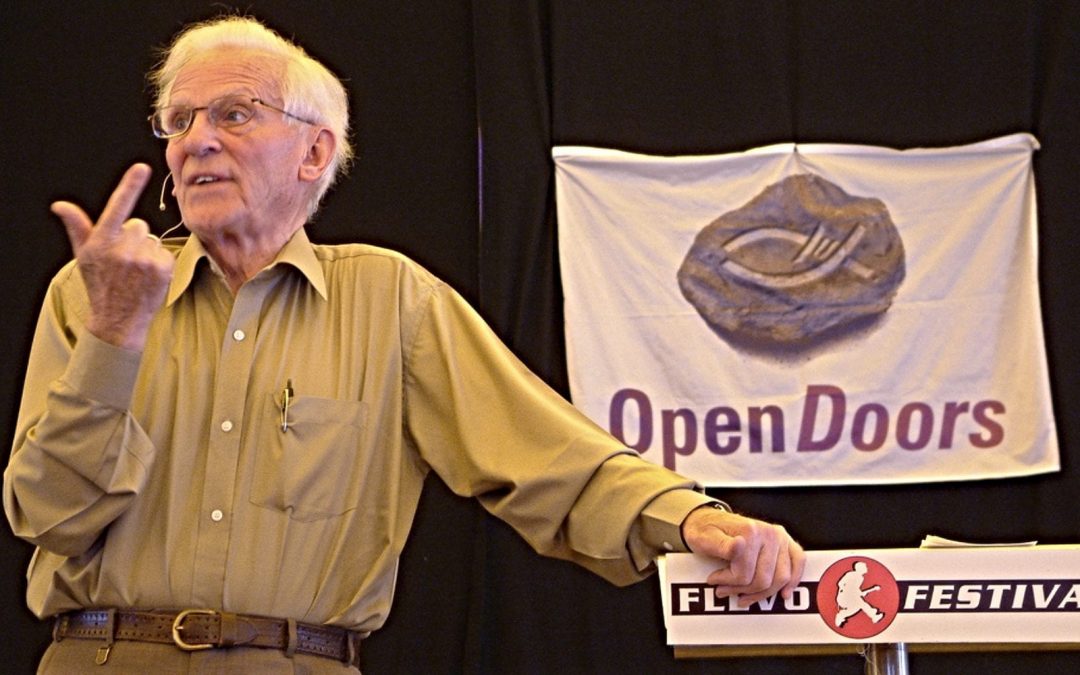The strongest nativist argument concerning immigration focuses on the rule of law. On all other ground, the sand sinks fairly quickly.
When pressed, conservatives will often concede that many unauthorized immigrants are good people fleeing poverty or danger.
Honest conservative friends of mine admit they might do the same if they were in the shoes of the immigrant, especially an immigrant with kids to feed or faced with dangerous living conditions.
Although contested, numerous studies have demonstrated the net economic benefit of immigration and that immigrants commit crimes at a lower rate than do native born Americans.
According to a New York Times article about crime and undocumented immigration, “A state-level analysis in Criminology, an academic journal, found that undocumented immigration did not increase violent crime and was in fact associated with slight decreases in it.”
During his 2016 presidential campaign, Donald Trump’s “either you have a country, or you don’t” statement about border control and immigration policy is Exhibit A for the fallacy of the false dichotomy associating immigrants with crime.
Countries always have challenges to be addressed, but we are no less a country in times of high immigration than when rates fall.
Indeed, high immigration rates are often a sign of national flourishing; struggling, impoverished countries tend not to face pressing immigration issues.
But the “Trump” card of conservatives is the legality argument: We can’t just let people get away with breaking the law.
This mindset can be logically handled by citing the arguments of Martin Luther King Jr. against segregation and the actions of Harriet Tubman and other conductors of the Underground Railroad to demonstrate how deeply flawed the law sometimes is.
In other words, something can be legal according to a nation’s statutes and still be unjust and immoral.
However, in our polarized era, King and Tubman may have limited legitimacy for people who see them solely as heroes of the political left. So, it is helpful to point to a conservative hero who broke unjust laws.
In the 1970s, amid great Cold War tensions, a missionary known as Brother Andrew became famous for sneaking Bibles into Communist countries in Eastern Europe and China.
He wrote two books about his experiences: “God’s Smuggler” and “The Ethics of Smuggling.”
In the second book, he defended his actions from critics who argued that the smuggling, while well-intentioned, was objectionable because it broke the law of countries into which the Bibles were smuggled.
Brother Andrew’s moral example and his replies to his legalistic critics have important implications for our immigration debates today.
He fiercely and passionately defended his actions by exhaustively cataloging Scriptural heroes who defied the law.
In Acts 4, the apostles were flogged for spreading God’s Word. In Acts 5, Peter answered charges of lawbreaking simply: “We must obey God rather than men.”
In Daniel, “a son of the gods” seemed to enter the fiery furnace with those who disobeyed Nebuchadnezzar, and, likewise, lions were no match for Daniel when he disobeys the king.
The prostitute Rahab was included in Hebrews’ famous “hall of faith” for illegally aiding the Hebrew invaders. Jonathan undermined King Saul’s efforts to hunt down his friend, David.
Paul spent a good portion of his Christian life in jail for defying governmental authorities, and God broke the law by miraculously springing Paul and Silas from a dungeon’s captivity.
Moses defied Pharaoh multiple times, and the Red Sea washed away government officials seeking to enforce Pharaoh’s law.
Jesus, of course, died a criminal. Brother Andrew pointed out, amazingly, that the resurrection itself was illegal: “Jesus even disobeyed government orders on the resurrection morning by rolling away the government stone, which was sealed with a government seal and guarded by soldiers.”
Brother Andrew readily handled pro-government Scripture in addressing the commonly cited statement in Matthew 22:20: “Render unto Caesar what is Caesar, but unto God what is God’s.”
He maintained that people should give themselves fully to God, and if they do, “there is nothing left for Caesar!”
Often, laws of a decent government – such as taxes levied to fight poverty, support the elderly and equip and protect our sons and daughters serving overseas – reflect, or at least do not contradict, God’s will.
But in the cases where flawed laws contradict God’s will, there is no contest. Brother Andrew noted Jesus’ words in Matthew 28:20: “All authority in heaven and earth have been given me.”
A conservative, rightly hailed as a Christian hero, has demolished the notion that there are no exceptions to the general rule that we should follow the law without question.
The “what part of illegal do you not understand?” argument has been profoundly refuted by a lion of the Christian right.
The answer to our conservative friends is clearly, “What part of God’s will do you not understand?”
Applied to the ongoing discussions about U.S. immigration policy, nativist Christians do not understand, or are willfully ignoring, God’s will for how we are to treat strangers among us.


